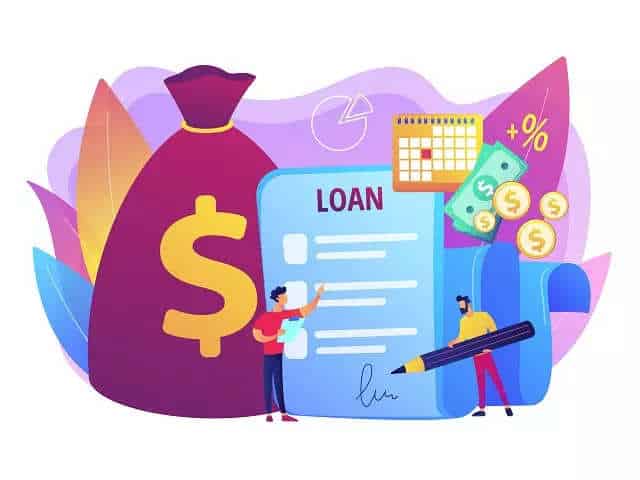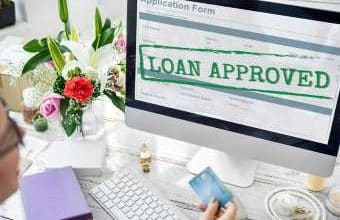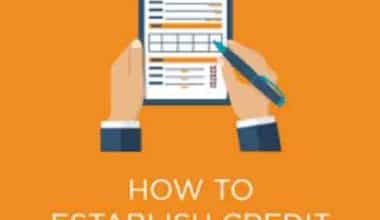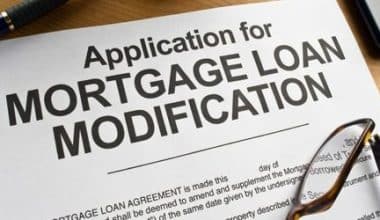A personal installment loan is a great way to pay for big purchases or get rid of debts with high-interest rates. With a fixed interest rate and repayment term, these loans offer stability and predictability, making it easier for borrowers to plan their finances and stay on track.
However, with so many options available, it can be difficult to determine the best one for your needs.
In this article, we will explore some of the best personal installment loan options available in 2023, taking into account factors such as interest rates, loan terms, fees, and customer reviews.
Whether you’re looking to finance a home renovation, pay for college, or simply consolidate debt, this guide will help you find the right personal installment loan for your situation.
What is a Personal Installment Loan?
A personal installment loan is a type of unsecured loan where the borrower receives a lump sum of money and repays it over a fixed period of time, typically in equal monthly payments.
The loan is typically used for personal expenses such as home improvement, medical bills, or debt consolidation, and the interest rate, loan term, and monthly payment amount are fixed at the time of loan disbursal.
Unlike credit cards, personal installment loans have a set repayment schedule, making it easier for borrowers to plan their finances and repay the loan on time.
Best Personal Installment Loan Options in 2023
Here are some of the best personal installment loan options in 2023.
#1. Personal Loans from Banks and Credit Unions
Banks and credit unions are two of the most common places where people can get personal installment loans. Most of the time, these loans have lower interest rates and more flexible loan terms than other options.
Also, many banks and credit unions offer specialized loan products, like loans for home improvements or loans to pay off multiple debts at once. The main problem with these loans is that they have strict requirements for who can get them. For example, you need to have a good credit score and a steady income.
#2. Online Personal Loans
Online personal loans are a convenient option for those who don’t have time to visit a bank or credit union in person. Most of the time, these loans are easier and faster to get than traditional loans. For example, many online lenders can give you a pre-approval in just a few minutes.
Online personal loans also have a wider range of loan options, including loans for people with bad credit. However, it’s important to be cautious when choosing an online lender, as some may have hidden fees or charges that can increase the overall cost of the loan.
#3. Payday Alternative Loans (PALs)
Payday alternative loans, or PALs, are installment loans that credit unions offer as an alternative to payday loans. These loans are meant to be a cheaper alternative to traditional payday loans. They have a lower interest rate, longer terms for paying back the loan, and a cap on fees.
PALs can be a good option for those with bad credit who need quick access to funds. However, credit unions may have stricter eligibility criteria compared to online lenders.
#4. Debt Consolidation Loans
Debt consolidation loans are a type of personal installment loan that is made for people who already owe money on more than one thing. The loan is used to pay off multiple debts, leaving the borrower with just one monthly payment.
When compared to other ways to pay off debt, these loans can make it easier to pay off debt and lower the interest rate. But the requirements for debt consolidation loans may be stricter, and people with bad credit may not be able to get one.
#5. Home Equity Loans
Home equity loans are a type of personal installment loan that is backed by the borrower’s home. This means that the loan is backed by the equity in the home, providing the lender with added security.
Home equity loans typically have lower interest rates compared to other loan options and can be used for a wide range of purposes, including home improvement and debt consolidation.
However, the loan is secured by the borrower’s home, putting the home at risk in case of default.
Can a Personal Loan be an Installment Loan?
Yes, a personal loan can be an installment loan. Personal loans are typically unsecured loans that can be used for a variety of purposes, including debt consolidation, home improvement, or unexpected expenses.
When a personal loan is structured as an installment loan, the borrower receives a lump sum of money and repays it in fixed equal payments over a set period of time, usually with interest.
This type of loan offers predictability and stability, as the interest rate and monthly payment amount remain fixed throughout the loan term.
Personal installment loans are a popular borrowing option for individuals who need funds for a specific purpose and want a predictable repayment schedule.
What is the Difference Between an Installment Loan and a Personal Loan?
An installment loan and a personal loan are similar in that they are both types of unsecured loans that can be used for a variety of purposes, including debt consolidation, home improvement, or unexpected expenses.
However, there are some key differences between the two:
#1. Repayment structure
An installment loan is structured with a fixed repayment term and equal monthly payments, while a personal loan may have a more flexible repayment structure, with varying monthly payments.
#2. Loan term
Installment loans typically have a longer loan term than personal loans, meaning the borrower has more time to repay the loan.
#3. Interest rate
Installment loans usually have a fixed interest rate, while personal loans may have either a fixed or variable interest rate.
#4. Loan amount
Installment loans typically have a lower loan amount than personal loans, while personal loans may be larger and used for more expensive expenses or debt consolidation.
In summary, both personal loans and installment loans are unsecured borrowing options, but installment loans have a more structured repayment schedule, longer loan term, and a fixed interest rate, while personal loans may offer more flexibility and a higher loan amount.
What are the Types of Installment Loans?
The most common types of installment loans are:
- Personal loans
- Mortgages
- Auto loans
- Student loans
- Payday alternative loans (PALs)
- Small business loans
- Home improvement loans
- Boat/RV loans
- Installment loans for bad credit
- Debt consolidation loans.
What are the disadvantages of using a personal installment loan?
The disadvantages of using a personal installment loan are:
- Higher interest rates compared to secured loans
- Origination fees
- Early payment penalties
- Limited use of funds
- Strict eligibility criteria
- Credit score impact
- Lengthy application process
- Required minimum monthly payments
- Potential for debt cycle
- Risk of property seizure (in case of default).
Is it Good to Have an Installment Loan?
Having an installment loan can be both good and bad, it depends on the individual’s financial situation and how the loan is used.
Advantages:
- Fixed monthly payments
- Predictable loan repayment
- Helps build credit
- Access to larger loan amounts
- Flexible loan terms
Disadvantages:
- Higher interest rates
- Origination fees
- Early payment penalties
- Strict eligibility criteria
- Lengthy application process
Whether an installment loan is good or not depends on the individual’s ability to repay the loan, their financial goals, and the purpose of the loan.
It is always recommended to carefully consider the terms and conditions before taking out any loan.
Personal Installment Loan For Bad Credit
A personal installment loan for bad credit is a loan specifically designed for individuals with a low credit score.
It is a type of loan that is repayable in equal monthly payments over a set period of time.
Advantages:
- Can help improve credit score
- Access to funds for emergency expenses
- Fixed monthly payments
- Predictable loan repayment
Disadvantages:
- Higher interest rates
- Strict eligibility criteria
- Origination fees
- Early payment penalties
- Risk of debt cycle
If you have bad credit and are considering a personal installment loan, it is important to compare loan options and understand the terms and conditions, including interest rates and fees, before making a decision.
It is also advisable to work on improving your credit score, as this can help you access better loan terms in the future.
Personal Installment Loan No Credit Check
A personal installment loan with no credit check is a loan where the lender does not check the borrower’s credit score.
This type of loan is often marketed as a solution for individuals with bad credit or no credit history.
Advantages:
- Quick access to funds
- No credit score impact
- No credit check
Disadvantages:
- High interest rates
- Short loan terms
- Origination fees
- Early payment penalties
- Risk of debt cycle
- Lack of loan options
It’s important to be aware that just because a lender does not check your credit score, it does not mean the loan is without risk.
These loans often have high interest rates, short loan terms, and other fees that can make it difficult to repay the loan.
If you have bad credit or no credit history, it’s advisable to explore alternative loan options, such as secured loans, and to work on improving your credit score before taking out a loan.
Unsecured Personal Installment Loan
An unsecured personal installment loan is a type of loan that is not backed by collateral (such as a car or house).
The loan is based on the borrower’s credit history, income, and debt-to-income ratio.
The loan is repaid in equal monthly payments over a set period of time.
Advantages:
- No collateral required
- Quick access to funds
- Fixed monthly payments
- Predictable loan repayment
- Helps build credit
Disadvantages:
- Higher interest rates
- Strict eligibility criteria
- Origination fees
- Early payment penalties
- Risk of debt cycle
An unsecured personal installment loan can be a good option for individuals who need quick access to funds but don’t have collateral to secure a loan.
However, it is important to understand the terms and conditions, including interest rates and fees, before taking out the loan and to make sure you can repay the loan in full and on time.
Conclusion
In conclusion, personal installment loans have proven to be a valuable resource for individuals seeking financial assistance in 2023.
With the various options available, it is important to weigh the pros and cons of each loan type to determine the best fit for your specific needs and circumstances.
Whether you choose a loan from a traditional lender like a bank or credit union, or opt for the convenience and accessibility of an online loan, it’s crucial to thoroughly research and compare the terms and conditions of each loan before making a decision.
Additionally, it’s important to have a clear understanding of the interest rates, fees, and repayment terms to ensure that you are able to comfortably make payments and avoid potential negative impacts on your credit score.
It’s worth mentioning that a personal installment loan should only be used as a last resort and not as a means to cover recurring expenses or splurge on unnecessary purchases.
The best approach to using a personal installment loan is to create a solid repayment plan and prioritize paying off the loan as soon as possible to minimize interest charges and avoid further financial stress.
Related Articles
- MICROFINANCE LOAN: TOP COVID-19PICKS & HOW TO APPLY (+QUICK GUIDE)
- The Top Best Business Loans For Startups With Bad Credit in 2023
- The 2023 Best Business Loans For Startups (Updated)
- BEST DEBT CONSOLIDATION LOANS FOR BAD CREDIT IN 2023.






